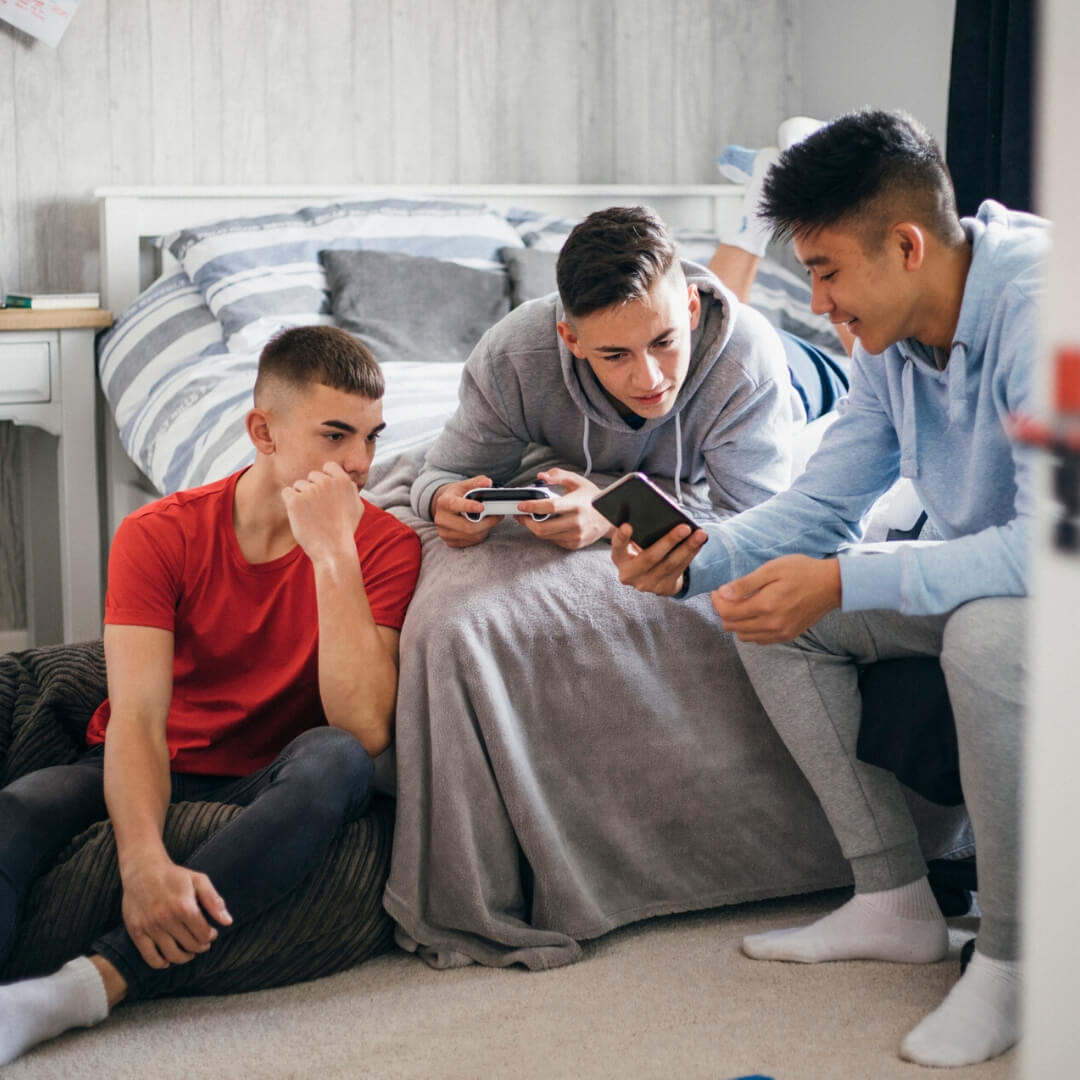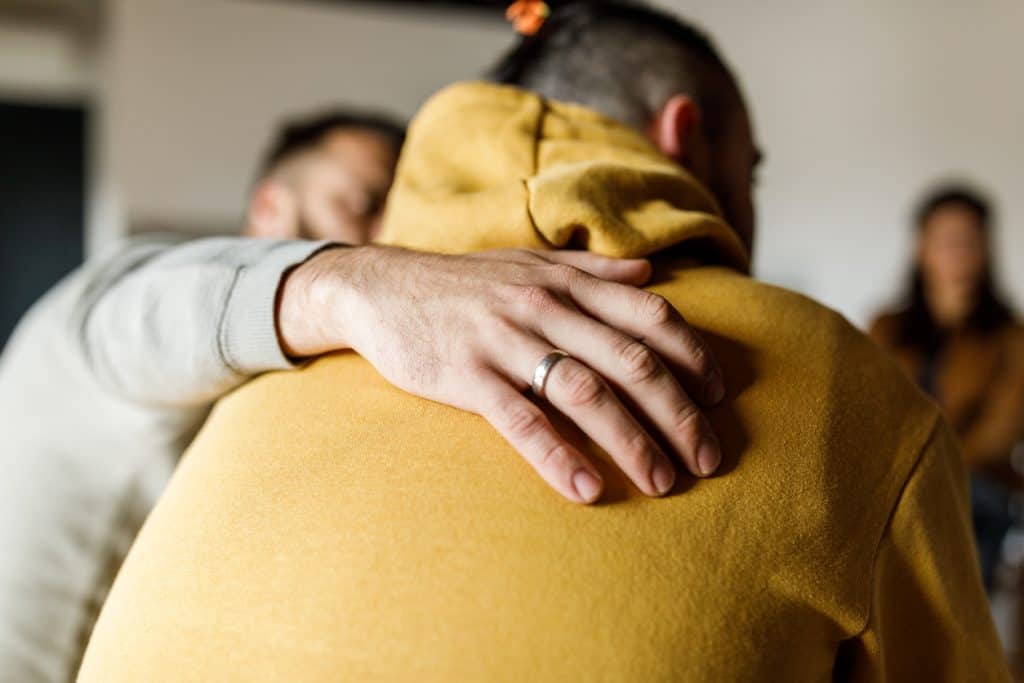What’s the big deal about watching porn?
If you’re a teenager, you might have asked that question or others like it. Scrolling through this blog, you’ll find a lot of stories from people whose lives have been messed up by porn. Many of these stories retell the damage done to marriages and spouses. You might be thinking, “That doesn’t have anything to do with me. I’m not married, and won’t be anytime soon.”
Perhaps you think porn is pretty neutral. Some of you may go as far as to say that porn is helpful or healthy—that it reduces your temptation to have pre-marital sex. That’s good, right?
Maybe not.
Consider this: as a teenager, it can be difficult for you to think or plan very far ahead. There’s nothing wrong with you. In fact, it’s completely normal. There’s a part of your brain that considers consequences and makes good decisions. It’s called the frontal lobe region, and it’s the last part of your brain to fully mature.
Related: How to Handle a Strong Sex Drive in a God-Honoring Way
Don’t believe me? Check out car insurance rates for an adult versus a teenager. The rates for the teen are significantly higher. Insurance rates are based on statistics, which show that teenagers (especially males) have more car accidents and speeding tickets than adults. Why? Because they believe they’re invincible. As in, “I can drive 100 MPH. It’s fun. Nothing bad is going to happen.” The impulsive parts of our brain that drive us to take risks are fully developed, but the frontal lobes—the parts that would say, “Hold up, that’s not a good idea”—are still years from being fully developed.
How does this connect to whether or not it’s OK to watch porn? Well, the same principle applies here. The same belief that tells a teenager he can be reckless without consequences tells him that he can use porn and masturbate, without any negative impact now or later. (By the way, it’s not just the guys. The gap between how many men versus women use porn is closing. More young women are using porn than ever before.)
So, back to the basic question: Is it OK to watch porn when I’m young and single, or is it harmful? In order to answer this question, I think it’s important to answer three other key questions:
1. What does porn do for me now?
There’s no doubt that porn does something for us that is appealing. If it didn’t, no one would watch it. Let’s look at two things porn does for the user—one is obvious, and the other not so clear.
Porn gives me a way to experience intense physical pleasure.
Our sexuality is an amazing gift from God, and one of my personal favorites. There is no other physical sensation that quite compares with sexual release. Research into what happens in our brains when we have sex or masturbate shows a powerful cocktail of hormones and chemicals designed to create pleasure.
Porn allows me to avoid negative feelings.
Many young people have lots of difficult experiences happening in their lives. Sadly, none of us make it to adulthood without pain or trauma. A tragic number of teenagers have experienced abuse in a variety of ways (physical, emotional, verbal, sexual), and porn allows them to “check out” and forget about their pain for a while. This is not a good thing. Pain needs to be processed.
2. What does porn do to me now?
If all we look at is the here and now (pleasure and the avoidance of pain), it would be easy to make the argument that porn is not only OK, but something to be encouraged. But an unfortunate reality is that porn not only does things for us, but it also does things to us. And these things are not positive, neither for our present, nor our future.
Porn conditions my brain, shaping my sexual preferences.
A lot of research shows us that young people start looking at porn around ages 9-11. For most kids, this exposure happens before their parents have told them anything about sex, or before they’ve had any personal sexual experiences. Because of this, porn becomes their sex-ed teacher, and this is bad news. Why? Because porn portrays sex as everything except what it was created to be.
Real sex is supposed to come from intimacy—a closeness and trust that already exists in a relationship. Real sex is supposed to come from commitment, demonstrated when a couple makes the lifetime commitment of marriage to one another. Real sex is supposed to focus on the other person, and to be mutually fulfilling.
Most porn portrays sex as completely self-focused and on-demand (as in, “I get it whenever I want it.”). Most porn is extremely degrading, disrespectful, and even physically abusive to women. The vast majority of mainstream porn features men slapping, spanking, hitting, or choking their female “partners.”
This is not real sex, but if you start watching porn when you’re 9 and you get no other messages, porn has “taught” you what to expect later.
Porn creates a chemical dependence that’s hard to break.
More and more studies on porn are proving that it is addictive. Whenever we take addictive drugs, they trigger chemical releases in our brains that are powerful and demand to be repeated. The more we use the drugs, the more hooked we become. Porn works the same way, causing the brain to release the same chemicals. Sadly, most people don’t realize they’re becoming addicted until they already are.
3. What will porn do to me later?
This is the hardest question for young people to fully investigate. Your brains are not wired yet to think too far ahead. While it’s a challenge for anyone to fully think through the future consequences of their actions, it’s even tougher for you, because of how the parts of your brain develop. That’s why God lovingly puts adults in your life who can help you see things that aren’t easy to see on your own.
Porn will damage you emotionally.
Porn is typically something people view by themselves. The more porn you watch, the more time you spend in isolation. Extended isolation has been proven to contribute to depression, anxiety, withdrawing from athletic or social activities, even increased suicidal thoughts. In addition, many people experience a lot of shame when they realize that their porn use has gotten out of control. They feel like there’s something wrong with them, and this can increase all the negative emotional effects mentioned above.
Porn will damage you physically.
The more porn we watch, the more dependent we become. Minutes spent on porn become hours. Porn addiction often causes sleep deprivation, which has a variety of negative physical effects. And for the guys, even young guys, there’s another phenomenon that’s becoming a real problem. Young men, in shockingly high numbers, are experiencing erectile dysfunction. Porn has so messed with the chemical responses in their brains, that their bodies can’t send the signals necessary to achieve an erection.
Related: Is Porn Use Causing Erectile Dysfunction in Teens?
Porn will damage you relationally.
Because of the hostile and aggressive nature of porn, there is a noticeable rise in instances of sexual assault. Young men, when they go to have sex with another person, are often recreating what they see in porn. The difference between porn and real life, though, is that sometimes in real life women say “no.” There is such a thing as consent, but porn doesn’t teach this. Men who have been conditioned by porn get angry when their partner isn’t willing to do whatever they ask, and in too many cases, this translates to assault. Recent stats from the U.K. show a shocking increase in rapes perpetrated by minors over a short period of time; their conclusion is that porn is largely to blame.
How to Recover From Porn Use
If you’re a teenager who uses porn, please realize that this is totally reversible. God has designed your brain, body, and spirit to recover from porn. It’s not too late. Here are some quick tips on what you can do right now.
- Accept God’s love and grace as you move forward. If you are a believer, nothing about your porn use changes that. Your relationship is secure because of what Jesus did, not because of how well you do. God desires to be close to you and to give you the help you need. You don’t need to be perfect to make Him happy.
- Tell someone you trust about your struggle. We cannot make these types of changes without help. You may be able to get through some days without acting out, but you can’t truly recover in isolation. Think of someone you trust to love and support you no matter what, then tell them everything, leaving nothing out. Healing comes when secrets come out.
- Do what you can to make it harder to access porn. Be honest with yourself and with your trusted person. How do you access porn? On what device(s)? What time(s) of the day? Getting specific will help you know what you need to do in order to make it harder to access. Some helpful actions include using Covenant Eyes Screen Accountability, not having your devices in your bedroom at night, and only using them when others are around.
- Put tools in place to encourage your recovery. Consider using an online resource that helps keep recovery on the front burner. Some good ones include Covenant Eyes’ Overcome Porn: 40 Day Challenge and Fortify, an interactive program from Fight the New Drug.
By thinking about what porn is doing for and to you now, and what it will do to you later, you’re reclaiming a healthier future for yourself and for all your relationships!








0 comments.